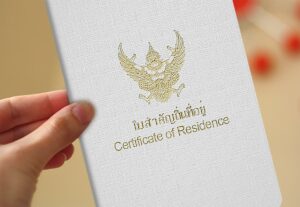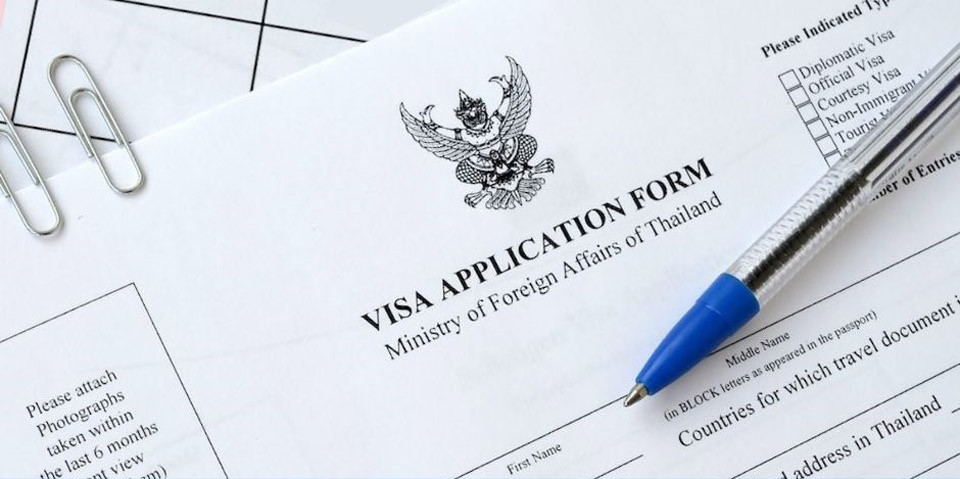The Thailand Long-Term Resident Visa represents a legal mechanism crafted to attract specific categories of foreign nationals who offer measurable economic or human capital benefits. Rather than merely extending stay durations, the LTR Visa incorporates components of residency, employment authorization, taxation, and investment, all regulated under an inter-agency framework involving the Board of Investment (BOI) and the Immigration Bureau.
This article provides a high-resolution examination of the benefits and privileges associated with the LTR Visa, focusing on legal structures, fiscal implications, administrative relief, and economic participation—offering a grounded understanding for professionals, investors, retirees, and remote workers.
I. Structural Overview and Legal Authority
The LTR Visa is authorized by a Cabinet resolution and administered under the Immigration Act B.E. 2522 (1979). Its framework operates through policy-based regulation rather than generalized immigration law, giving it a unique legal and procedural status.
Key Administrative Agencies:
-
Thailand Board of Investment (BOI): Handles eligibility screening, sectoral qualification, and issuance of digital work permits.
-
Immigration Bureau: Provides visa endorsement, enforces compliance, and manages residency reporting.
-
One Stop Service Center (OSSVC): Consolidates visa, permit, and reporting functions in one administrative platform.
II. Visa Duration and Mobility Rights
-
Validity: 10 years (issued in two 5-year blocks).
-
Re-entry: Unlimited entries and exits; no re-entry permits required.
-
Reporting: Annual address confirmation (as opposed to quarterly reporting under other visa types).
-
Renewal: At the 5-year mark, revalidation of eligibility is required, but the process is simplified and managed through the BOI.
This long-duration structure reduces administrative friction and allows for greater continuity in professional, investment, or retirement plans.
III. Eligibility Categories and Economic Function
LTR Visa eligibility is categorized into four groups, each aligned with a national economic policy objective.
1. Wealthy Global Citizens
Qualifications:
-
Assets ≥ USD 1 million.
-
Annual income ≥ USD 80,000 (past 2 years).
-
Investment ≥ USD 500,000 in Thai assets (e.g., real estate, equity, government bonds).
Purpose: Promote long-term foreign capital infusion into Thai property and financial markets.
2. Wealthy Pensioners
Qualifications:
-
Age ≥ 50 years.
-
Annual income ≥ USD 80,000, or ≥ USD 40,000 with USD 250,000 invested in Thai assets.
Purpose: Attract financially stable retirees to stimulate long-term domestic consumption without increasing labor market pressure.
3. Work-from-Thailand Professionals
Qualifications:
-
Employed by a foreign company with annual revenue ≥ USD 150 million.
-
Income ≥ USD 80,000.
-
At least 5 years of relevant experience.
-
Remote-compatible role.
Purpose: Legally accommodate remote professionals who earn abroad but live and consume locally.
4. Highly Skilled Professionals
Qualifications:
-
Income ≥ USD 80,000 (or ≥ USD 40,000 with postgraduate degree).
-
5+ years of experience.
-
Employment in BOI-prioritized sectors (e.g., robotics, AI, clean energy, biotech, aerospace).
-
Employer must be BOI-approved or government-aligned.
Purpose: Import knowledge capital into critical Thai industries.
IV. Work Authorization: BOI Digital Work Permit
The LTR Visa allows for legal employment in Thailand through a digital work permit for qualifying categories (3 and 4).
Distinctive Features:
-
Issued by the BOI without Ministry of Labour approval.
-
Exempt from standard labor quotas (e.g., Thai-to-foreigner staff ratios).
-
Valid for the entire visa period and can be extended in line with visa renewals.
-
Fully digital—no physical work permit booklet required.
Effect: Drastically reduces compliance burdens for both employers and employees, enabling swift legal onboarding and lower operating risk.
V. Taxation Privileges and Fiscal Strategy
Thailand’s LTR Visa provides key tax benefits not available under other visa types.1. Flat 17% Personal Income Tax (PIT)
-
Exclusive to Highly Skilled Professionals.
-
Applies to Thai-sourced income only.
-
Must be paid through a BOI-endorsed employer registered with the Revenue Department.
By comparison, Thailand’s progressive PIT scale ranges from 5% to 35%, making this a significant fiscal advantage for senior professionals.
2. Foreign Income Remittance Rule
-
Thailand follows a territorial tax regime.
-
Foreign-sourced income is not taxed if:
-
Earned abroad, and
-
Not remitted into Thailand in the same calendar year.
-
This allows for legal tax deferral or exemption, giving globally mobile professionals and retirees substantial planning flexibility.
3. Tax Filing Obligations
-
LTR holders present in Thailand for ≥183 days in a year are considered tax residents.
-
Annual filing is required, regardless of tax liability.
VI. Investment and Property Rights
LTR Visa holders do not enjoy land ownership privileges, but they do gain legal access to other forms of property and investment.
Permitted Activities:
-
Freehold condominium ownership within the 49% foreign quota of a given building.
-
Leasehold property rights for up to 30 years (renewable).
-
Eligible investments include:
-
Thai government bonds.
-
Public and private Thai equities.
-
BOI-promoted startups and infrastructure projects.
-
Note: These activities are both privileges and, in certain cases, part of the qualifying criteria for obtaining the visa.
VII. Dependent Rights and Family Inclusion
Each primary LTR Visa holder may include up to 4 dependents:
-
Spouse (legally married).
-
Children under the age of 20.
Key Provisions:
-
Dependents receive the same 10-year visa.
-
Spouses may also apply for a digital work permit if eligible under BOI employment criteria.
-
Dependents may access local and international education.
This makes the LTR Visa a legally secure and administratively consistent path for family-based relocation.
VIII. Travel and Immigration Privileges
LTR holders receive:
-
Priority immigration lanes at Thailand’s major international airports.
-
Access to Elite Personal Assistant (EPA) services for expedited entry and departure.
-
Exemption from re-entry permit requirements, allowing for unencumbered international mobility.
IX. Compliance Requirements and Termination Conditions
To retain LTR Visa status, holders must:
-
Maintain health insurance with minimum coverage of USD 50,000 or enroll in Thai Social Security if employed locally.
-
File annual address reports.
-
Continue to meet qualifying criteria for the 5-year renewal period (income, employment, or investment).
-
File income tax returns if physically present ≥183 days.
Visa Revocation Grounds:
-
Loss of qualifying status (e.g., divestment, job termination).
-
Criminal conviction in Thailand or abroad.
-
Misrepresentation or submission of false documents.
-
Non-compliance with visa conditions or Thai law.
Conclusion
The Long-Term Resident Visa offers a rare fusion of legal certainty, tax efficiency, family unification, and administrative simplicity. It is not a generalized immigration product but a finely tailored legal tool for individuals who meet defined thresholds and align with national development goals.
Whether you are a globally mobile professional, an investor, a retiree with stable income, or a strategic hire in a high-value sector, the LTR Visa provides a comprehensive legal platform to live, work, and invest in Thailand with long-term clarity.
You might also enjoy

Thai Business Partnership
A Thai business partnership is one of the most commonly

Thailand Permanent Residency
Thailand Permanent Residency (PR) is a highly sought-after immigration status

Child Custody in Thailand
Child custody in Thailand is governed by the Civil and


